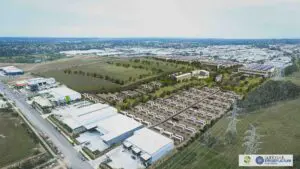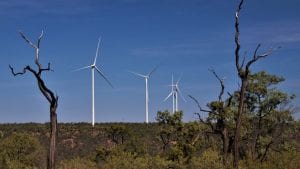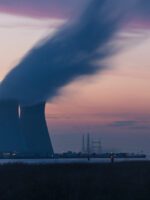US funds management giant Brookfield is still keen to get hold of Australian utility Origin Energy and light a (low carbon) fire under the country’s green energy transition, and appears to have negotiated a slightly reduced price for the target.
After months of scrutiny and analysis, Brookfield e and its consortium partner MidOcean Energy have cut their previous offer of $9 a share to $8.90.
Origin’s board says it is willing to accept the $18 billion offer, subject to certain conditions, which is not surprising given the widespread expectation that the bid could be cut by a greater amount.
The justification for the lower bid is based entirely around foreign exchange risks relating to the LNG business that MidOcean, an LNG company, wants to get hold of.
It suggests that Brookfield still see full value in Origin’s utility business, and its previously stated plans of spending another $20 billion to fast track the utility’s switch to a portfolio of renewables and storage and take a lead in the green energy transition in Australia.
“Brookfield is committed to investing in the energy transition in Australia and we see Origin playing a leading role in helping Australia meet its legislated climate and energy goals,” Brookfield’s head in the Asia Pacific Stewart Upson said in a statement.
“We intend to invest a further A$20 billion by 2030 to build new renewable capacity and storage for Australia, reducing costs over time while maintaining the reliability of the grid during this crucial phase of investment.”
EIG, the parent company of MidOcean, also sees value in the LNG business, for the sake of energy security.
“Energy transition informs every decision we make, and this transaction perfectly highlights societies twin goals of decarbonisation and energy security,” said EIG chairman R. Blair Thomas.
“We view LNG as the key transition fuel that will foster the security of supply and price stability necessary while the global energy complex is changed to low and zero carbon alternatives.”
(The “price stability” afforded by LNG will be a big surprise to anyone who has had to pay an energy bill in the last year).
The bidding consortium had hoped to finalise their due diligence and negotiations with Origin late last year, but the ongoing global energy crisis, and the newly announced price caps for gas and coal in Australia pushed the talks well into the new year.
An exclusivity arrangement expired, but it appears no new bidder has emerged.
“Origin advises that the Consortium has submitted a revised conditional and non-binding proposal … to acquire all the shares in Origin by way of a scheme of arrangement,” the company said.
“The Revised Proposal is at a price of $8.90 cash per share comprising:
$8.90 per share for the first 100,000 shares held by each Origin shareholder; and for shares above that threshold, $4.334 per share plus US$3.194 per share.
Origin said the changes and the US$ consideration reflects the underlying exposure of Origin’s Integrated Gas assets, and specifically cash distributions from its 27.5 per cent interest in Australia Pacific LNG.
The price payable would be reduced by any dividends paid by Origin prior to completion, along with a “ticking fee” of 4.5c a month if the scheme of arrangement is delayed beyond November 30 this year.
Origin said its board considers the new proposal “has the potential to deliver significant value to shareholders,” and it intends to continue to progress discussions with the consortium.
“At this stage, shareholders do not need to take any action. Origin will continue to keep shareholders updated in accordance with its continuous disclosure obligations.”
A take-over by Brookfield promises to be transformative both for Origin Energy, and the Australian electricity industry in general.
Origin has flagged its intention to close the country’s biggest coal generator, the 2.8GW Eraring facility in NSW, by August, 2025 (although that date is not locked in), and to build a big battery there, and possibly also at other gas generation sites.
However, Origin – like the country’s other big utilities – is largely interested in investing in wind and solar by contracting through third parties, as it has done with the Stockyard Hill wind farm in Victoria, the country’s biggest.
Brookfield – which also made an offer for AGL in conjunction with software billionaire Mike Cannon-Brookes – appears determined to build out its own wind, solar and storage portfolio – using the Origin business and brand as its platform. In doing so, the deal could be transformative for the industry.
Note: This updates an earlier version where the author got the name of the bidding consortium spectacularly wrong.










